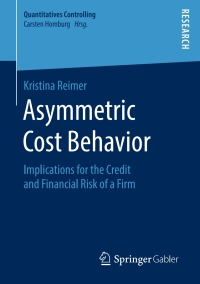Question
AMC Entertainment Holdings, Inc. [AMC] is an American movie theater chain headquartered in Leawood, Kansas, and the largest movie theater chain in the world. Founded
"AMC Entertainment Holdings, Inc. [AMC] is an American movie theater chain headquartered in Leawood, Kansas, and the largest movie theater chain in the world. Founded in 1920, AMC has the largest share of the U.S. theater market ahead of Regal and Cinemark Theatres" (https://en.wikipedia.org/wiki/AMC_Theatres) AMC is like the "meme" stocks widely written about on Reddit.com's Wallstreetbets discussion forum, where small investors share information about securities. One area of interest there is short selling by hedge funds. Short selling is done when you think the price of a security will go down rather than up. You borrow shares from your broker and sell them. Then when the price declines you buy them back and return them to their owner (along with interest on this 'loan'). But what happens if the price goes up instead of down?
At some point your broker will force you to return the shares and you will have to buy shares at the higher price (i.e., you lose money on the transaction). This is what the Reddit group is playing with. Large hedge funds have shorted millions of shares of companies like AMC (e.g., GME, SKT, AMCX), in the expectation that the price will go down. The Reddit investors have countered by taking long positions in those companies (a buy and hold strategy) to drive the share price up. Essentially, they're playing 'chicken' with the hedge funds, because at some point the short sales will have to be 'covered' which will drive the price even higher. Think about the other implications of this. The lender of the shares still has ownership rights, but the shares have been sold to someone else who also has ownership rights, so short selling effectively results in increasing the number of shares outstanding. There is also a practice known as 'naked' short selling, where investors 'sell' stock that doesn't really exist (i.e., they didn't actually borrow any existing shares - if you'd like to know more, here is a link to a description of naked short selling: https://www.investopedia.com/terms/n/nakedshorting.asp). This short selling has been going on with a number of the "meme" stocks. In fact, Since the beginning of February or 2021, more than half of the trades in AMC shares have been short sales (you can check the "short interest" here: http://shortvolumes.com/?t=AMC).
Answer the following questions to see who you think will win this battle (the short sellers hoping the price drops, or the investors that buy and hold hoping the price rises)? Show your calculated numbers, and write your analysis based on what you find. To aid in your analysis an Excel object containing AMC's quarterly data from 2017 to September 2020, as well as annual Statements of Cash Flows is attached to this document.
Retrieved from
https://finance.yahoo.com/quote/AMC/options?p=AMC February 25, 2021
Required:
1) For each quarter of data, decompose AMC's ROE into the 5 component ratios that we discussed in class.
2-6) Discuss what each of the components of the decomposition means or represents (I do not want a 'formula' - I want an explanation of the practical concept represented by each ratio).
7) Discuss the patterns/trends you see in the decomposition (what does this foretell for the company's future?).
8-9) AMC has traditionally had 3 revenue streams: Admissions; Food and Beverage; and Other Theater. For each quarter, compute the Gross Margin percentages for Admissions and Food and Beverage. Note, explicitly, the assumptions you made in making your calculations.
10-11) Discuss the patterns you see in the revenue streams.
12) Create common-size income statements (by quarter) for AMC (a common-size income statement takes each item on the income statement and divides it by that period's total revenues).
13-15) What are the three items that comprise, in general, the largest costs for AMC? How have they varied over time? Going forward, what are the implications of any identified variations for AMC's profitability?
16) What are your thoughts about AMC's ability to return to profitability in a post-pandemic economy (you might want to reference the Statement of Cash Flows in your response)?
17) From a financial perspective, what are the greatest obstacles to AMCs future prospects?
18) From a financial perspective, what are the greatest strengths impacting AMCs future prospects?
19-20) Given your analysis in 1-18 above (the trends in AMC's performance, it's financial strengths and weaknesses), who do you think will win the game of 'chicken?' Is the stock price likely to go up or down? On what, specifically, do you base your conclusion.
Step by Step Solution
There are 3 Steps involved in it
Step: 1

Get Instant Access to Expert-Tailored Solutions
See step-by-step solutions with expert insights and AI powered tools for academic success
Step: 2

Step: 3

Ace Your Homework with AI
Get the answers you need in no time with our AI-driven, step-by-step assistance
Get Started


